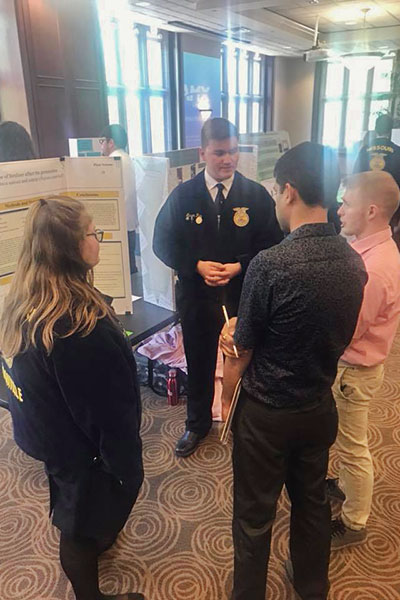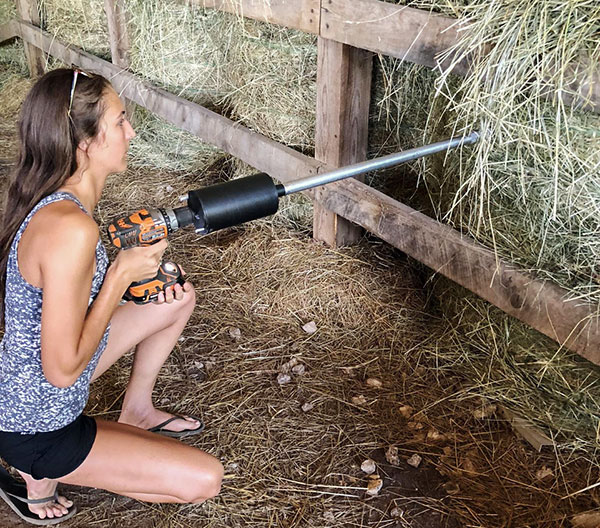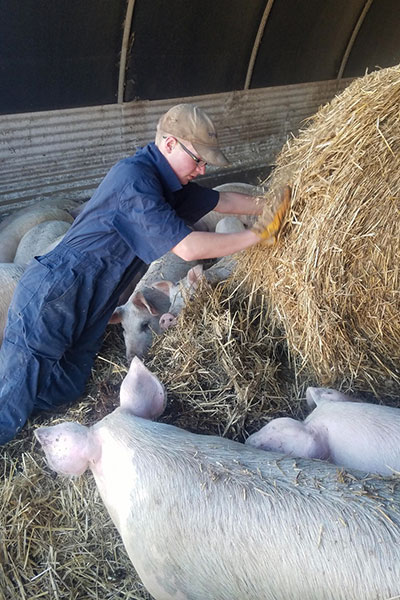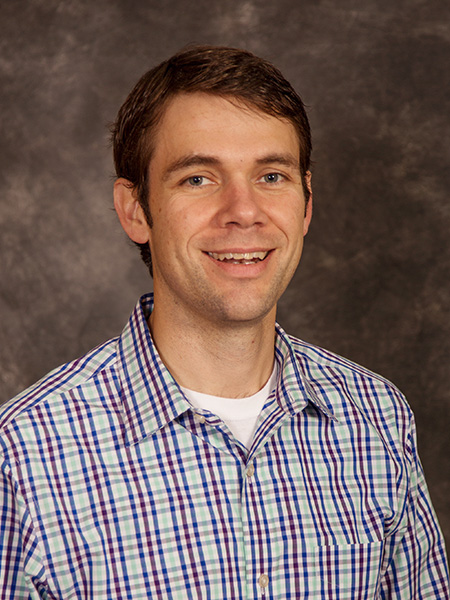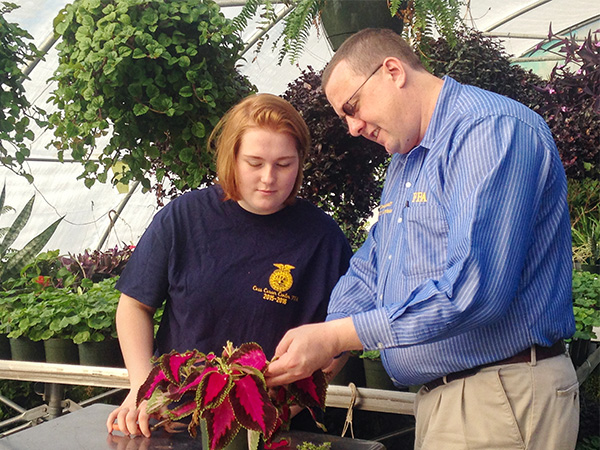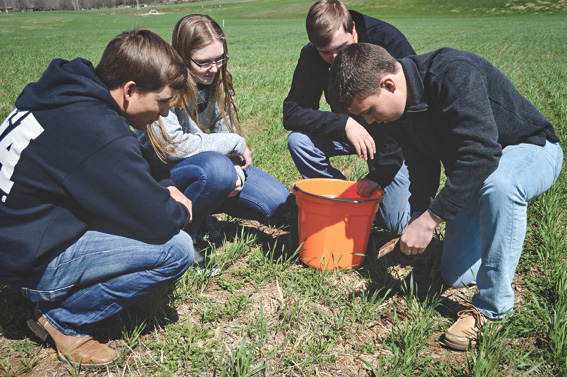
Republic FFA begins land restoration project
by Jera Pipkin
Just as crops are growing in the field, Republic FFA members are inside the classroom learning what it takes to run a sustainable row crop operation.
An opportunity cropped up when school administrators reached out to the FFA chapter for help.
“Our administrators were looking for a better way to take care of the land in front of our new high school,” said David Mareth, agriculture instructor and FFA advisor at Republic High School. “They came to us for help.”
For years, the FFA chapter had taken hay off of the extra land, Mareth said. However, administrators within the district were looking for more. Yet, if the FFA chapter was going to spend time restoring the land, they wanted it to be self-sustainable and profitable.
With 45 acres of open ground, Republic FFA began by no-tilling wheat into the soil to enhance the landscape surrounding the high school. Mareth explained how the students are working to manage the project and will eventually reap the benefits of what they sow.
Intertwining with the curriculum for Agricultural Science II, instructor and FFA advisor Ciara DeClue has enjoyed interacting with the students and encouraging their growth during the process. The project has sparked interest, and students are eager to learn.
“The kids are really excited,” DeClue said. “I am excited to see what it will grow into and how we will sell our product to farmers.”
DeClue explained how students will learn the process of restoring the land from poor to rich soil. The soil is in undesirable condition because of extensive excavation of the ground from when the high school was built.
From figuring out what to plant and when to plant it, to crop rotations, soil samples, Environmental Protection Agency studies, and waterway research, students are receiving the full experience, Mareth said. With the capability for hands-on learning, the project will continually give back to students in the chapter.
Additionally, they have created a two-year plan, budget, and profit margin analysis for their enterprise. This will give the students the confidence and knowledge to run an enterprise of their own one day, Mareth explained.
Currently, a local alumnus is assisting the chapter in spraying, cultivating, planting and harvesting the crop, Mareth said. The alumnus is donating his machinery and time to the project. Yet, the students’ work still comes in to play, providing the local alumnus with amounts for pesticide and seeds per acre and calculating potential harvest. Relying on producers in the area has allowed them to use resources to get their feet on the ground, he said.
“Having someone running it like it is their own will allow us to continue to plan while meeting the needs of the administration,” Mareth explained. “Any profit we make will go back into the next crop, making this a completely self-sustainable process.”
Looking to the future, the chapter plans to institute a wheat-soybean crop rotation. DeClue said once the soil is restored completely, they will then plant warm season grasses to harvest for a hay crop to sell to local farmers.
“I hope that students will experience a full rotation of crop,” DeClue added. “This will allow students to see the process all the way through.”
On a larger scale, Mareth said, the chapter will eventually purchase equipment. Once established, the chapter will be able to harvest for profit, giving the students a visual of how hard work truly pays off.
Additionally, other areas surrounding the high school will go into supporting the land restoration project and agriculture department. Mareth described future plans for starting a school herd of livestock. Students would then be able to conduct trials on the livestock using hay harvested on the school ground, while also using the manure to fertilize. Plans to establish a rotational grazing program are also on the horizon. That would allow students to see the process full circle and use their knowledge in other areas of crop and grassland management.
“This is only the first step in expanding the presence of our agriculture program on campus,” Mareth said. “Our administrators are excited about what we are doing.”
Mareth said administrators are raving about the results from the land restoration project results thus far. They enjoy that it is relevant, practical and real-world.
“The school is getting everything they wanted done, plus it is providing pride and education back into our agricultural program,” Mareth said.
While both Mareth and DeClue agree that the project hasn’t sunk in with students yet, they know chapter members are learning and growing alongside the crops they have planted. Once the students are able to see something in the field, Mareth and DeClue believe they will really see the process come to life.
“I think this can build excitement for the program because they can see what we are doing for the school and that they have an impact here,” DeClue said.
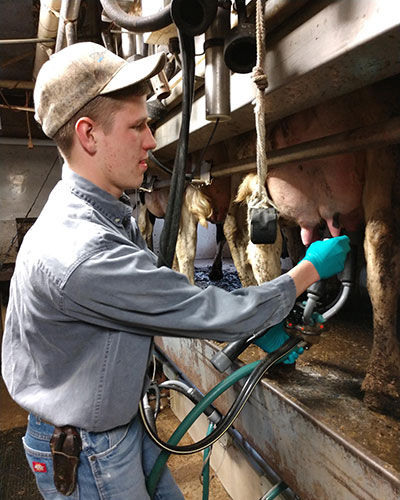 Concordia FFA member Austin Freund remembers when he was a youngster following his dad around their family dairy operation.
Concordia FFA member Austin Freund remembers when he was a youngster following his dad around their family dairy operation.




